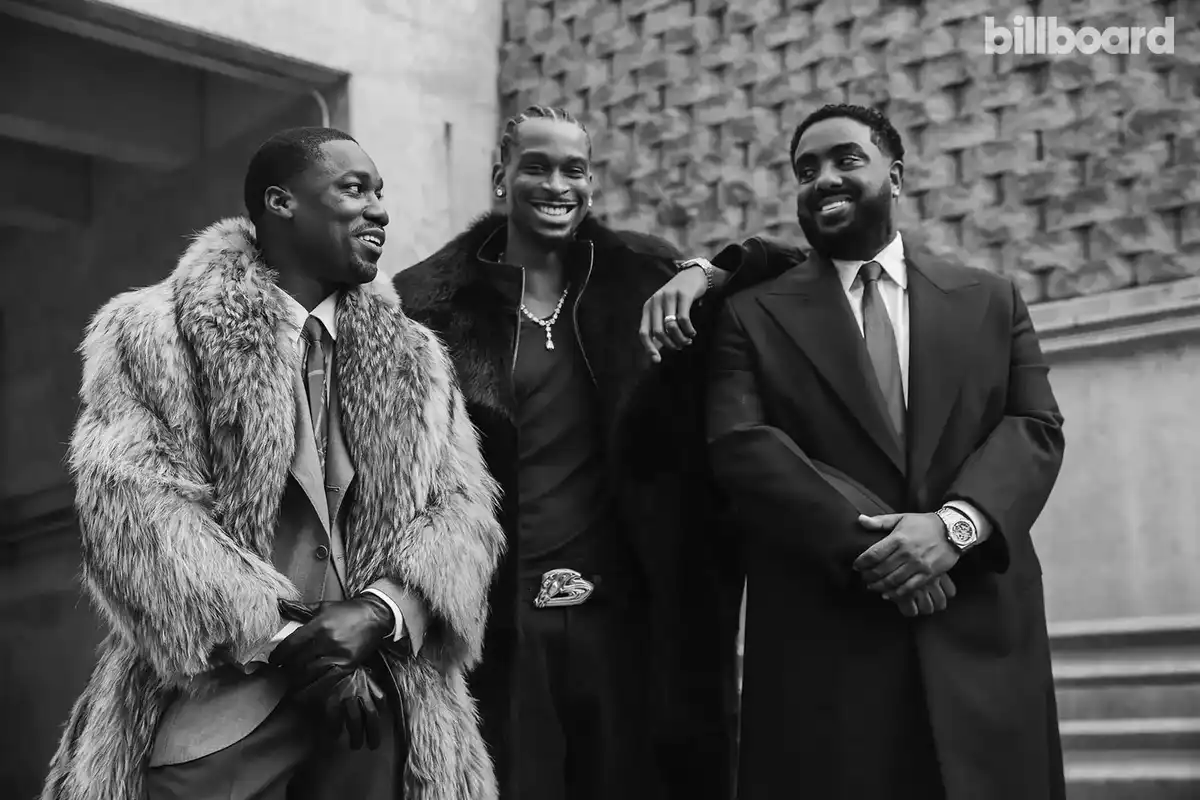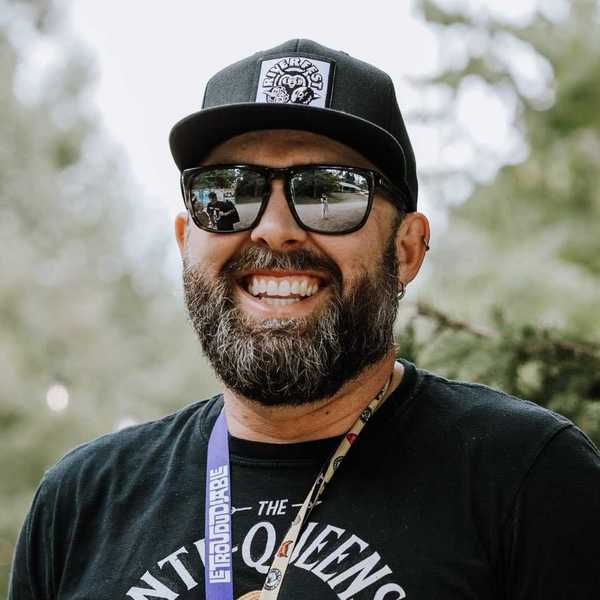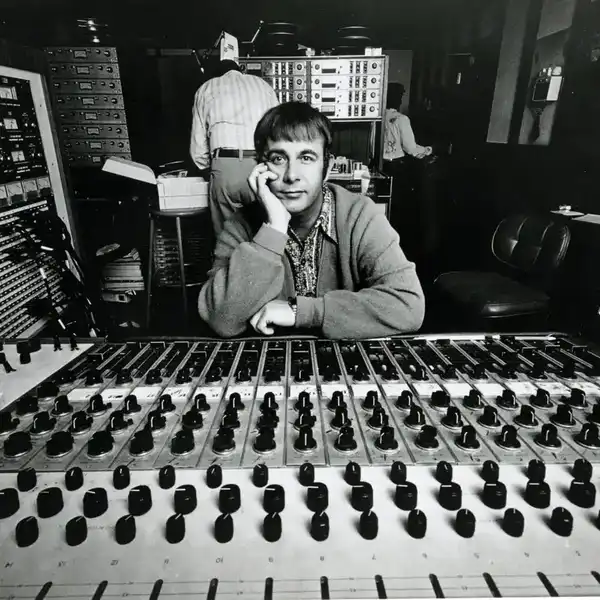In Memoriam: Those We Lost Over The Holiday Period
The period just prior to and during the holiday season sadly saw the passing of a large number of notable musical and industry figures. Learn more about them here.

By Kerry Doole
The period just prior to and during the holiday season sadly saw the loss of a large number of notable musical and industry figures. This diverse grouping includes visionary artists in the jazz, reggae, country and bluegrass genres, a Canadian Songwriting Hall of Fame member, a legendary rock guitarist, a '60s Anglo pop star, and a popular Canadian music biz veteran. They will be missed.
Roly (Roland Harold) Greenway, Crowbar bassist and a member of the Canadian Songwriting Hall of Fame, died on Dec. 22, after a long battle with cancer, at age 78.
Greenway is in the CSHF with bandmate Kelly Jay for writing the Canrock anthem Oh, What A Feeling.
Included on Crowbar's first album, Bad Manors, Oh What A Feeling became the first CanCon hit single in 1971 and ultimately became the catchphrase for a book, TV special, and CD box set.
Greenway was born in Guelph and was a much-beloved member of that city's music scene. He picked up the guitar in 1958 when he was 16 years old and two years later, he was working as a professional musician, Guelph Today reports. He played with such visiting stars as Zsa Zsa Gabor and Liberace, and in 1969 Greenway joined the backup band for Ronnie Hawkins. When he and his bandmates were fired a year later, they formed Crowbar.
It was during his time with Crowbar that Greenway teamed up with keyboardist Kelly Jay Fordham to write the hit song Oh What a Feeling. He was still earning royalties on the song 50 years later and in 2011, both he and Kelly Jay were inducted into the Canadian Songwriter’s Hall of Fame.
Crowbar disbanded and reunited several times before Kelly Jay’s death in June 2019.
Greenway continued to perform, write and record with a number of groups over the years but he never enjoyed the same level of success and was forced to pick up a side gig as a landscape contractor to pay the bills. Many in Guelph simply knew him as their good friend and jam buddy 'Roly.'
Cremation has taken place. A private family service will be held at a later date. Condolences can be sent via the funeral home (Wall-Custance) website here Sources: Guelph Today, Wikipedia
– Jim (James Douglas) Fotheringham, former head of A&R at RCA/BMG Canada in the ‘80s, died on Dec. 22, at age 71, after a heart attack.
Born and raised in Dryden, Ontario, Fotheringham grew up in a musical family. His mother was a well-known piano teacher in Dryden and his younger brother, musician and record producer Craig Fotheringham, went on to became a much celebrated member of the Manitoba music community.
Music historian John Einarson posted on Facebook that “Jim came to Winnipeg in the late 1960s to attend university. There he met singer Don Jordan (aka Fabulous George) and together they put together the retro/boogie band Fabulous George & The Zodiacs. Jim, nicknamed 'The Hulk', played piano and second guitar.”
Einarson was a member of that band, and he notes that “We played just about every rockin' pub in town and in the fall played one-nighters at high schools and university faculties. Jim was always an entertainer and crowd-pleaser. When the band folded in 1972, Jim joined Don Jordan in another party band and after that joined Junior Barnes and The Cadillacs."
Fotheringham became a record rep for RCA Records in Winnipeg prior to relocating to Toronto and working at the label’s head office.
In the ‘80s, he was Director of A&R at RCA Records/BMG Canada and had many notable domestic signings. These included Gary O, Pretty Rough, White Wolf, New Regime, and The Tragically Hip. He also secured a deal with Gerry Young’s Current Records that brought Parachute Club and M+M (Martha and the Muffins) to the label.
Gerry Young confirms to FYI that “Jim did arrange for Current Records' first band, Martha And The Muffins, to sign our first worldwide distribution deal for the album Danseparc through Dan Loggins, RCA/BMG 's A&R Director in the US, in 1982.
"RCA/BMG beat out CBS by offering a worldwide two album, guaranteed deal. Jim showed his foresight when the second album on the Martha And The Muffins deal a year later turned out to be Mystery Walk, which featured the song Black Stations/White Stations, the #2 Billboard Dance record of 1984, after Prince's When Doves Cry. RCA/BMG and Jim showed such faith in me and the band, it was a no brainer to offer them our next signing, The Parachute Club, whose self-titled debut album featured the Juno Award-winning Single Of The Year for 1983, Rise Up."
Young terms Fotheringham "an all round good guy, and always a pleasure to deal with. We were close enough friends that one year when he knew I'd be spending Christmas day alone, he invited me to his home, where he had prepared a sumptuous Christmas Turkey dinner with all the fixings. Good times and he will be missed by many."
In 1990, Fotheringham joined Jeff Burns’ label, Justin Entertainment (later Blue Sapphire Music). "I hired Jim as National Sales," Burns tells FYI. "He did well with Kenny MacLean's solo album, Don't Look Back, and others he worked with included The Blondes (Platinum Blonde) and Krokus. Jim was very well-liked and respected in the music industry. I also considered Jim a friend and am shocked about his passing."
Fotheringham left the music industry to join the home entertainment sector, working as Senior VP, Home Entertainment, eOne Films Canada, from 1992 to 2013, followed by retirement.
Sources: John Einarson, Kevin Shea, Alannah Fotheringham, Gerry Young, Jeff Burns.
Leslie West (born Leslie Weinstein), the US rock guitarist and vocalist best known for his work in Mountain, died on Dec. 23, at age 75, of cardiac arrest.
His hard rock trio Mountain (featuring Canadian drummer Corky Laing) is best known for the hit Mississippi Queen. Released in 1970 on Mountain’s debut album, it became an enduring classic rock favourite.
Rolling Stone notes that “West, a contemporary of Eric Clapton, Jimmy Page and Jimi Hendrix, was respected for his versatile playing (from fingerpicking to metallic power chords) and was revered by a new generation of guitar players who followed. In 2011, Eddie Van Halen told Rolling Stone that West and Deep Purple’s Ritchie Blackmore were among his biggest influences.“
West grew up in the New York area — Manhattan, Long Island and Forest Hills, Queens — and was a founding member of The Vagrants, a blue-eyed soul garage band of the mid-Sixties. The group (which also included his brother Larry on bass) scored two minor hits, I Can’t Make a Friend and a cover of Otis Redding’s Respect (released just before Aretha Franklin’s titanic version) before West left the band.
With the help of Cream producer and bass player Felix Pappalardi, who met West when he was producing The Vagrants, West made a solo album, Mountain. Mountain also became the name of the band the two men formed – “because I was so fat!” West later joked.
West was known for electric-shock white-blues riffing, but could also play more fluid melodic lines (as heard in Mountain’s Nantucket Sleighride and his solo in their Theme from an Imaginary Western).
The original incarnation of Mountain scored a high-profile appearance at the Woodstock festival. Although it garnered a large following, the group broke up in 1972. West then formed West, Bruce, Laing, a Cream-style power trio with Mountain drummer Laing and Cream’s Jack Bruce. The group released three albums and sold out New York’s Carnegie Hall, but in 1974, West reformed Mountain for two more records.
In 1975, he released a solo album, The Great Fatsby, featuring contributions from Mick Jagger and Keith Richards. Over the next few decades, West would alternate between solo albums and touring and recording with different versions of Mountain.
West’s health had been an issue for many years, following drug problems. In the mid-Eighties, he was diagnosed with diabetes — his lower right leg was amputated due to complications from the disease.
Mountain continued on and off with different lineups, and the band released an album of Bob Dylan covers, Masters of War, in 2007; Ozzy Osbourne sang lead on the title remake. Attesting to West’s stature, his 2011 album The Unusual Suspects included contributions from Slash, Billy Gibbons and Zakk Wylde, and West’s last album, Soundcheck, featured Peter Frampton.
Aside from Mississippi Queen, Mountain songs to have had an impact included Nantucket Sleighride, Theme From An Imaginary Western, and Long Red, which has been sampled by Jay-Z, Kanye West, De La Soul, and more.
His peers were quick to pay tribute upon learning of his passing. Canadian guitar ace and producer David Bendeth called West "an influence on so many musicians and guitarists. I know you are on that Nantucket sleighride tonight. Thank you for all the wonderful music, and all the amazing solos!"
On FB, Myles Goodwyn (April Wine) posted that "he was a wonderful guitar player, a fine lead singer and a great person. In my mind, and for many, it was Leslie that made the Gibson, Les Paul Jr., popular with rockers because he played one in the band Mountain and it was featured on his classic song, Mississippi Queen, one of my favourite rock songs of all time."
Producer/musician Jon Tiven posted that West was "a great friend and a real mensch. We spoke three weeks ago and he asked me to help him with his new record, and I was really looking forward to it. Respect, indeed." Sources: Rolling Stone, Ultimate Classic Rock, David Bendeth, Jon Tiven
– Tony (David Anthony) Rice, an acoustic guitarist and singer/songwriter considered one of the bluegrass genre’s most important musicians, died on Dec. 25, age 69. No cause of death has been reported.
He was a 2013 inductee into the International Bluegrass Music Association Hall of Fame.
Tributes from his bluegrass contemporaries and those influenced by him as the news spread. Rice was “the single most influential acoustic guitar player in the last 50 years,” said Ricky Skaggs, who played alongside Rice in the group the New South in the 1970s and later rejoined him for a classic duets album, Skaggs/Rice. “Not only was Tony a brilliant guitar player,” Skaggs added, "but he was also one of the most stylistic lead vocalists in bluegrass music history.”
Others praising Rice included Chris Thile, Bela Fleck, Mark O’Connor, Claire Lynch, and Kenny Chesney.
Before joining Skaggs in the New South, Rice was a member of J.D. Crowe’s New South in the early ’70s. His later outfits included the David Grisman Band, the Bluegrass Album Band (which included Doyle Lawson), the Tony Rice Unit (which for a time included Alison Krauss as a member) and Rice, Hillman & Pedersen (with brother Larry Rice, ex-Byrd Chris Hillman and Herb Pedersen). He was also noted for his work with Fleck and Jerry Garcia.
Rice had not played guitar publicly since his International Bluegrass Hall of Fame induction in 2013, due to medical conditions that made playing guitar difficult. He had not sung in concert since shortly after being diagnosed with muscle-tension dysphonia in 1994.
Rice also won many IBMA Awards and a Grammy Award. Source: Variety
– K.T. (Kay Toinette) Oslin, an American country singer/songwriter, died on Dec. 20, age 78. She had been battling Parkinson’s disease and was recently diagnosed with Covid-19.
Oslin was the first female songwriter to win the CMA Award for Song of the Year, for her 1987 hit 80’s Ladies.
The Arkansas-born Oslin was 45 when she released her chart-topping debut country album, 80’s Ladies — a remarkable feat then for a woman in country music and a near impossibility today. Along with the Top 10 title track, the LP included a pair of country Number Ones in Do Ya and I’ll Always Come Back. But it was the nostalgic ballad 80’s Ladies — about a trio of girls who “burned our bras…dinners…and our candles at both ends” — that became her signature. “There ain’t been much these ladies ain’t tried,” Oslin sang.
80’s Ladies won Oslin — the song’s sole composer — the CMA Award for Song of the Year in 1988, making history in the process as the first woman to win the award. At that same ceremony, Oslin was also named Female Vocalist of the Year. She’d go on to win a Grammy Award for her performance of 80’s Ladies and earned two more Grammys for Hold Me, which hit Number One in 1989. Her fourth and final chart-topper, Come Next Monday, arrived a year later.
Along with her career as a solo performer, Oslin had her songs recorded by an array of artists. Sissy Spacek cut Lonely But Only for You in 1983, Dottie West released Where Is a Woman to Go in 1984, and the Judds recorded Old Pictures in 1987. Anne Murray, Dusty Springfield, Gail Davies, and Dan Seals also interpreted Oslin’s material. Oslin would go on to influence a crop of today’s songwriters.
Oslin stopped regular touring in the early '90s and began a career as an actor, appearing in TV series and made-for-TV movies. She released a greatest hits album in 1993 whose title summed up the self-assured way she viewed growing old: Songs From an Aging Sex Bomb.
Oslin would go on to make occasional appearances on stage and release more music, including the 1996 Americana effort My Roots Are Showing… and a 2001 collaboration with the Mavericks’ Raul Malo, Live Close By, Visit Often. Her last album was 2015’s Simply. In 2018, Oslin was inducted into the Nashville Songwriters Hall of Fame. Source: Rolling Stone
– Chad Stuart (born David Stuart Chadwick), one half of UK pop duo Chad & Jeremy, died this month, from non-covid related pneumonia, at age 79.
Chad & Jeremy had their first hit in 1963 with Yesterday’s Gone. The next hit, A Summer Song, went Top 10 in the UK in 1964, peaking at no 7.
Chad Stuart and Jeremy Clyde met at the Central School of Speech and Drama in London in 1962. They were an immediate hit with their folk sound and quickly found an audience in the US, but the Beatle invasion just a year later made their sound outdated. They sent up Beatlemania in a 1965 episode of the Dick Van Dyke Show. The duo broke up in 1968, but Stuart continued to find work in entertainment, becoming the musical director for the Smothers Brothers' variety TV show, and later working as a staff producer for A&M Records.
The duo informally reunited in the late '70s, and eventually began to record and tour again, releasing the Chad Stuart & Jeremy Clyde album in 1983. They separated again from 1987 to 2002, but resumed touring for much of the 21st century, playing at a number of '60s and British Invasion-themed gigs and package tours, before Stuart officially retired to Sun Valley, Idaho in the late '10s.
Clyde continues to tour and record as a solo artist. Sources: Noise11, Wikipedia, Billboard
– Carl Mann, who took a rockabilly version of Nat King Cole's Mona Lisa into the Top 40, died on Dec. 16, at the age of 78. The cause of death was not published.
The Texan-born Mann grew up singing country and gospel, and performing in talent shows as a boy. But the rise of Elvis Presley pointed a new direction for him, and it led to his first record, Gonna Rock and Roll Tonight, which he cut for Jaxson in 1957. A year later, through Carl Perkins' drummer, W.S. "Fluke" Holland, he secured an audition for Memphis' Sun Records, the home of Presley, Perkins and Johnny Cash.
One of the songs he cut that day was Mona Lisa, an Oscar-winning song for Cole in 1950. Mann and his band had tested the arrangement onstage to great success, but Sun head Sam Phillips was unconvinced until Conway Twitty, who'd previously had a brief, unproductive time on Sun, began climbing the Billboard Hot 100 with his own version a year later, and released Mann's.
Phillips and Mann won the battle. Mann's take charted higher than Twitty's -- No. 25 vs. No. 29 -- and sold a million copies. But the follow-up, another Cole song called Pretend, only peaked at No. 57, and none of his other Sun singles charted.
A three-stint in the Army followed, and although rockabilly had long faded by the time of his 1967 discharge, he was able to sign with Monument for a single, Down To My Last I Love You. When it failed, he returned to Huntingdon to work in his family's lumber business.
But a decade later, a rockabilly revival took hold in Europe, and he found himself performing there regularly, followed by dates in the U.S. at festivals devoted to roots music. A book about him, The Last Son of Sun, came out in 2011. Source: Ultimate Classic Rock
– Jeff Clayton, an alto saxophonist and multi-reedist who was co-bandleader (and co-namesake) of both the Clayton Brothers Quintet and the Clayton-Hamilton Jazz Orchestra, died on Dec. 16, age 65, of kidney cancer.
His death was announced by his elder brother John Clayton, also a musician and co-bandleader with his brother.
A veteran of Stevie Wonder’s touring band, Jeff Clayton also logged time in the Count Basie Orchestra and with bassist Ray Brown, working as a journeyman reeds player in both touring and studio ensembles. He and John, a bassist, founded the Clayton Brothers in 1977; eight years later, the brothers joined forces with drummer Jeff Hamilton to establish the 20-piece eponymous Jazz Orchestra. The band has for 35 years been among the leading lights of West Coast jazz, and Clayton along with it as one of the Orchestra’s star soloists.
He was also a noted educator, teaching at the University of California – Los Angeles, the University of Southern California, Cal State Long Beach, and Cal State Los Angeles as well as conducting myriad jazz camps, clinics, and master classes throughout the U.S. and the wider world. Source: JazzTimes
– Stanley (Allen) Cowell, the US jazz pianist, died on Dec. 18, age 79, of hypovolemic shock.
His playing consolidated generations of musical history. He was also a composer, an educator and the founder of an important artist-run record label.
The New York Times writes that "Mr. Cowell’s playing epitomized the piano’s ability to consolidate generations of musical history into a unified expression, while extending various routes into the future. And when he needed to say more than the piano allowed, he expanded his palette.
He was among the first jazz musicians to make prominent use of the kalimba, a thumb piano from southeastern Africa. In his later decades, he worked often with a digital sound-design program, Kyma, that allowed him to alter the pitch and texture of an acoustic piano’s sound."
In 1971, together with the trumpeter Charles Tolliver, Cowell founded Strata-East Records, a pioneering institution in jazz and the broader Black Arts Movement. It would release a steady run of pathbreaking music over the coming decade, becoming one of the most successful Black-run labels of its time.
Cowell's first recording session, in 1966, was for the album Three for Shepp. He went on to make over a dozen albums in the 1970s, ’80s and ’90s, including a run for the Steeplechase label while in his 40s and 50s that, while generally unsung, represents one of that era’s most consistently brilliant stretches of jazz recordings.
Cowell and Tolliver met in the late 1960s, as members of the drummer Max Roach’s ensemble. After recording a now-classic album with Roach, Members, Don’t Git Weary, in 1968, they formed a quartet called Music Inc., which released its debut LP, The Ringer, on Polydor in 1970.
Inspired by the Black musicians’ collectives that had recently sprouted up in cities across the country, and by the artist-run Strata label in Detroit, Mr. Cowell and Mr. Tolliver founded Strata-East. Their second album together, Music Inc, with the quartet fleshed out into a large ensemble, was the label’s first release.
Over the coming decade, Strata-East would release dozens of album, including some by Cowell, including Musa: Ancestral Streams (1974), Regeneration (1975), and a pair of singular albums with the Piano Choir, a group of seven pianists, Handscapes 1 (1973) and Handscapes 2 (1975).
Cowell was also becoming one of New York’s most in-demand side musicians, playing an integral role in the Heath Brothers band and groups led by the saxophonists Arthur Blythe and Art Pepper and the vibraphonist Bobby Hutcherson.
After becoming a full-time music professor in the 1980s, first at the City University of New York’s Lehman College and later at Rutgers, Cowell eventually stepped back from public performances and recordings.
In 2002, Stanley Cowell and Dewey Redman collaborated with Canadian jazz great Jane Bunnett on the album Spirituals & Dedications, featuring traditional songs from the Christian church. Bunnett’s husband Larry Cramer produced the record, released on Montreal label Justin Time.
After retiring from teaching in 2013, Cowell revved up his performing career again. He reconnected with his old cohort, including Tolliver and other former members of the Strata-East roster, touring under the name the Strata-East All Stars. And in 2015, Cowell released the album Juneteenth, featuring what he called “a solo piano reduction” of the suite. His quartet’s appearance at the Village Vanguard in 2015 was his first weeklong engagement in New York in nearly two decades. Sources: The New York Times, Jane Bunnett
– Albert Griffiths, the singer of reggae group The Gladiators, died on Nov. 16, age 74. He had long battled Parkinson’s.
“Albert stopped touring about 14 years owing to illness and has been at his home in Aberdeen, Jamaica, where he was being cared for very well,” former manager, Cabel ‘Jeffrey’ Stephenson, Stephenson said of the vocalist, who recorded the blockbuster hit Hello Carol in the late sixties.
Griffiths started The Gladiators in 1967 while a session guitarist at Coxsone Dodd’s famous Studio One. He recruited his childhood friends David Webber and Errol Grandison to form the original Gladiators vocal group, and, soon after, added Gallimore Sutherland and Clinton Fearon.
During the early 1970s, The Gladiators cut numerous records for various producers, but it was their Studio One recordings such as Bongo Red, Jah Jah Go Before Us, Mr Baldwin, and Roots Natty that became their biggest hits. This success attracted the attention of Britain-based Virgin Records, which gave the group their first major recording contract in 1976. Their debut full-length album for Virgin was Trenchtown Mix Up, followed by Proverbial Reggae (1978).
Notably, at the time, The Gladiators was a full band and also included musicians such as Sly Dunbar on drums. Lloyd Parks on bass, Uziah “Sticky” Thompson on percussion, Ansel Collins on keyboards, and Earl ‘Wire’ Lindo on synthesizer. Errol Thompson and Joe Gibbs were their engineer and mixer. Relentless touring throughout Europe, the United States, South America, and the Pacific made The Gladiators a top draw. Source: Jamaica Gleaner


















 Simon GebrelulDiwang Valdez
Simon GebrelulDiwang Valdez Shai Gilgeous-AlexanderDiwang Valdez
Shai Gilgeous-AlexanderDiwang Valdez GIVĒONDiwang Valdez
GIVĒONDiwang Valdez